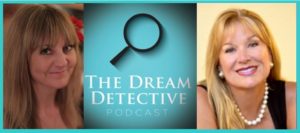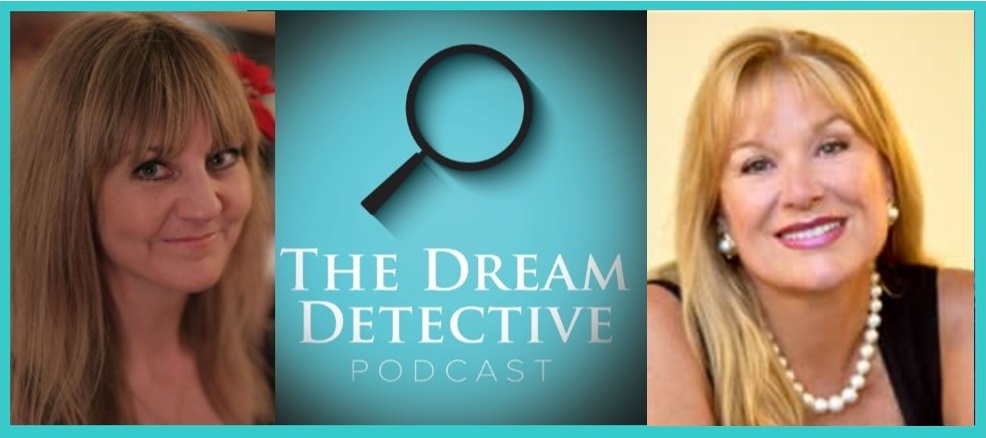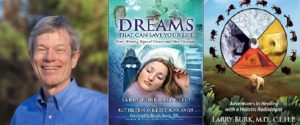Here are some links to a few articles about foods that can help you sleep:
http://www.psychologytoday.com/blog/sleep-newzzz/201311/kiwi-super-food-sleep
http://www.medicalnewstoday.com/articles/271232.php
http://www.canadianliving.com/health/sleep/5_foods_that_help_you_sleep.php
Highlights from CanadianLiving.com:
Foods that help you sleep
While turkey and hot milk are the most well-known sleep-inducing foods, there are others you can load into your grocery cart for an express ticket to dreamland.
1. Kiwi fruit
The fuzzy tropical fruit might be the ultimate sleepy-time snack. A recent study by Taiwanese scientists found that women with sleeping problems who consumed two kiwi fruit one hour before bedtime fell asleep 45 minutes faster, and had better sleep duration and quality than those who went without the fruit. One explanation: Kiwi fruit may contain serotonin, a compound that regulates the sleep cycle.
Extra credit: Kiwi fruit is brimming with vitamin C, an antioxidant shown to reduce blood pressure.
2. Pistachios
If you spend too many nights tossing and turning, consider going nuts for pistachios. The verdant nuts are a good source of vitamin B6, which your body needs to make serotonin. Pistachios also contain fibre, protein and healthy fats – a trio that will help quell late-night hunger pangs.
Extra credit: Because you have to shell the nuts, scientists at Eastern Illinois University found that snacking on in-shell nuts as opposed to shelled ones improved portion control.
3. Tart cherry juice
Move over, warm milk, there’s a new drink in town. A 2012 European Journal of Nutrition study showed that insomniacs slept an average of 34 minutes longer after drinking tart cherry juice in the morning and evening. Researchers credit the juice’s high quantities of melatonin.
Extra credit: Look for a brand that is 100 percent cherry juice. Dilute it with water or club soda if you find it too tart. Also try adding dried tart cherries to cereals and salads.
Highlights from MedicalNewsToday.com:
Possible health benefits of consuming kiwis
Consuming fruits and vegetables of all kinds has long been associated with a reduced risk of heart disease, diabetes, cancer and other conditions. Many studies have shown that increased consumption of plant foods like kiwis decreases the risk of obesity and overall mortality.
Beautiful Skin: Collagen, the skins support system, is reliant on vitamin C as an essential nutrient that works in our bodies as an antioxidant to help prevent damage caused by the sun, pollution and smoke, smooth wrinkles and improve overall skin texture.1
Better Sleep: According to a study on the effects of kiwifruit consumption on sleep quality in adults with sleep problems, it was found that kiwi consumption may improve sleep onset, duration, and efficiency in adults with self-reported sleep disturbances.
Heart Health: The fiber and potassium in kiwis support heart health. An increase in potassium intake along with a decrease in sodium intake is the most important dietary change that a person can make to reduce their risk of cardiovascular disease, according to Mark Houston, MD, MS, an associate clinical professor of medicine at Vanderbilt Medical School and director of the Hypertension Institute at St Thomas Hospital in Tennessee.3
In one study, those who consumed 4069 mg of potassium per day had a 49% lower risk of death from ischemic heart disease compared with those who consumed less potassium (about 1000 mg per day).3
High potassium intakes are also associated with a reduced risk of stroke, protection against loss of muscle mass, preservation of bone mineral density and reduction in the formation of kidney stones.3
Lowering Blood Pressure: Because of their high potassium content, kiwis can help negate the effects of sodium in the body. It is possible that a low potassium intake is just as big of a risk factor in developing high blood pressure as a high sodium intake.
According to the National Health and Nutrition Examination Survey, fewer than 2% of US adults meet the daily 4700 mg recommendation for potassium.3
Also of note, a high potassium intake is associated with a 20% decreased risk of dying from all causes.3
Constipation Prevention: Numerous studies have reported that the kiwi may have a mild laxative effect and could be used as a dietary supplement especially for elderly individuals experiencing constipation. Regular consumption of kiwifruit was shown to promote bulkier, softer and more frequent stool production.
From PsychologyToday.com:
Here’s some news that might make kiwi a true superfood: new research suggests that eating kiwifruit may have significant benefits for sleep.
Researchers at Taiwan’s Taipei Medical University studied the effects of kiwi consumption on sleep. They found that eating kiwi on a daily basis was linked to substantial improvements to both sleep quality and sleep quantity. Their study included 22 women and 2 men between the ages 20-55. All were experiencing some form of disrupted sleep. For a period of 4 weeks, the volunteers ate 2 kiwifruit 1 hour before bed. Researchers collected data on volunteers’ sleep throughout the study period using sleep diaries, a standard sleep-quality questionnaire, and wristwatches that measured aspects of sleep quality and quantity. After 4 weeks of kiwi consumption, researchers found significant improvements to several measures of sleep:
- People fell asleep more quickly. Sleep onset latency—the amount of time it takes to fall asleep after going to bed—decreased by 35.4%.
- People slept more soundly. Waking time after sleep onset—the amount of time spent in periods of wakefulness after initially falling asleep—fell 28.9%.
- Sleep quality improved. Scores on a standardized sleep quality questionnaire—where lower scores mean better sleep—decreased by 42.4%.
- Sleep efficiency—a measurement of the amount of time spent actually sleeping compared to the total amount of time spent in bed—increased by 5.41%.
- People slept more overall. Total sleep time among the volunteers increased by 13.4%.
These are some pretty dramatic improvements to quality, quantity and efficiency of sleep. We need to see additional research explore the sleep-promoting effects of kiwifruit, but this is a pretty intriguing start.
What’s behind the possible benefits of kiwi to sleep? There are a couple of characteristics of the fruit that may make it a strong sleep-promoting food: its high antioxidant levels and its high serotonin levels.
The same antioxidant properties that provide so many other health benefits also may help to improve sleep. The relationship between antioxidant foods and sleep is one we’re just beginning to understand. Research has established a basic link between sleep and antioxidants in the body. Studies show that poor sleep is associated with decreased antioxidant levels, and also that recovery sleep appears to help restore antioxidant levels. A number of studies have demonstrated the negative effects of obstructive sleep apnea on antioxidant function, and that the antioxidant vitamin C is effective in treating cardiovascular problems associated with sleep apnea. But what about improvements to sleep itself? We’ve yet to see much research directed at the role of antioxidants and antioxidant-rich foods in promoting sleep. This latest study may well indicate a role for kiwifruit and other high-antioxidant foods in treating sleep problems.
Beyond its strength as an antioxidant, kiwi is also a fruit high in serotonin. A hormone that also functions as a neurotransmitter, serotonin is involved in a broad range of physiologic processes: it has digestive and cardiovascular functions, assists in learning and memory, and helps to regulate appetite and mood. Serotonin deficiency has long been associated with depression and mood disorders. The relationship of serotonin to depression has never been fully understood, and the precise role of the hormone in depression and other mood disorders remains contested among scientists. Serotonin is also critical in sleep. Serotonin in the body contributes to several aspects of sleep, including helping to initiate sleep onset and to maintain sleep during the night. The hormone is involved in regulating movement through the stages of sleep, including time spent in the deepest, slow-wave sleep. Serotonin also helps to stimulate wakefulness in the morning. Research indicates that manipulation of levels of serotonin up or down can promote or inhibit sleep. Serotonin appears to interact with melatonin, another hormone essential to sleep, in helping to regulate the body’s 24-hour circadian cycle as well as other physiologic functions. Studies have shown that the stimulation of serotonin levels may in turn increase melatonin levels. The presence of a relatively high concentration of serotonin in kiwifruit may contribute to its apparent ability to improve sleep.
Kiwi isn’t the only potentially sleep-boosting food out there. There are a number of other types of food that can aid sleep. Magnesium and potassium rich foods help promote relaxation and circulation. They include dark leafy greens, bananas, nuts, seeds, citrus, tomatoes, and whole grains. Foods high in calcium help to boost melatonin levels. In addition to dairy, soy, nuts, seeds, and whole grains are strong calcium sources.
So, should you run out and buy a bag of kiwi for a pre-bedtime snack? One study can’t tell us all that we need to know about the effect of kiwifruit consumption on sleep. We’ll need to see additional research to confirm and expand on these very interesting initial results. That said, there is little question that a vitamin rich, low-fat and low-sugar diet is beneficial for your sleep. And the possibility that we might harness the power of certain foods like kiwi as a natural, low-cost, non-pharmacologic, direct treatment for sleep is an exciting one, and worth further investigation.
Sweet Dreams,
Michael J. Breus, PhD
The Sleep Doctor™









